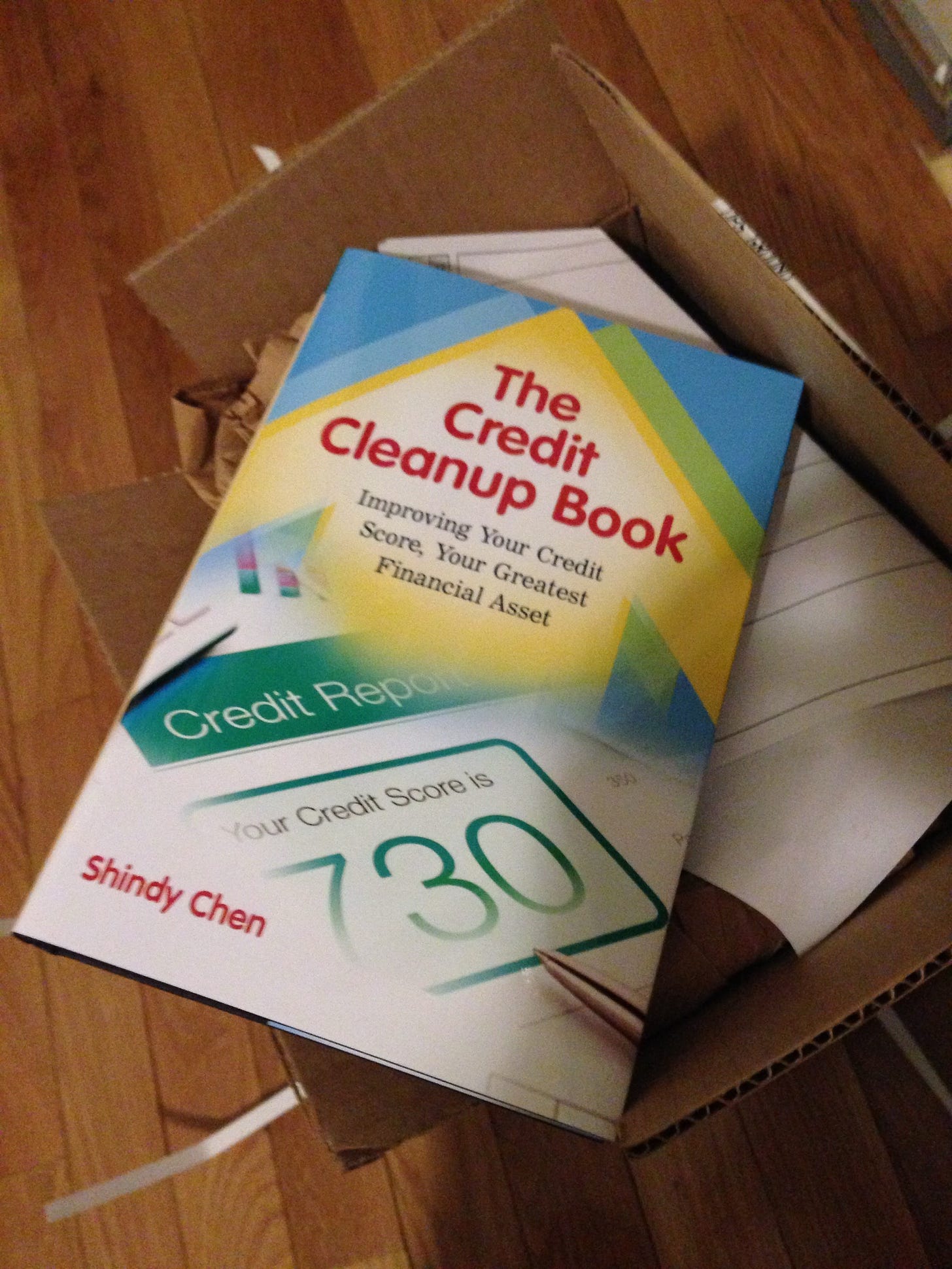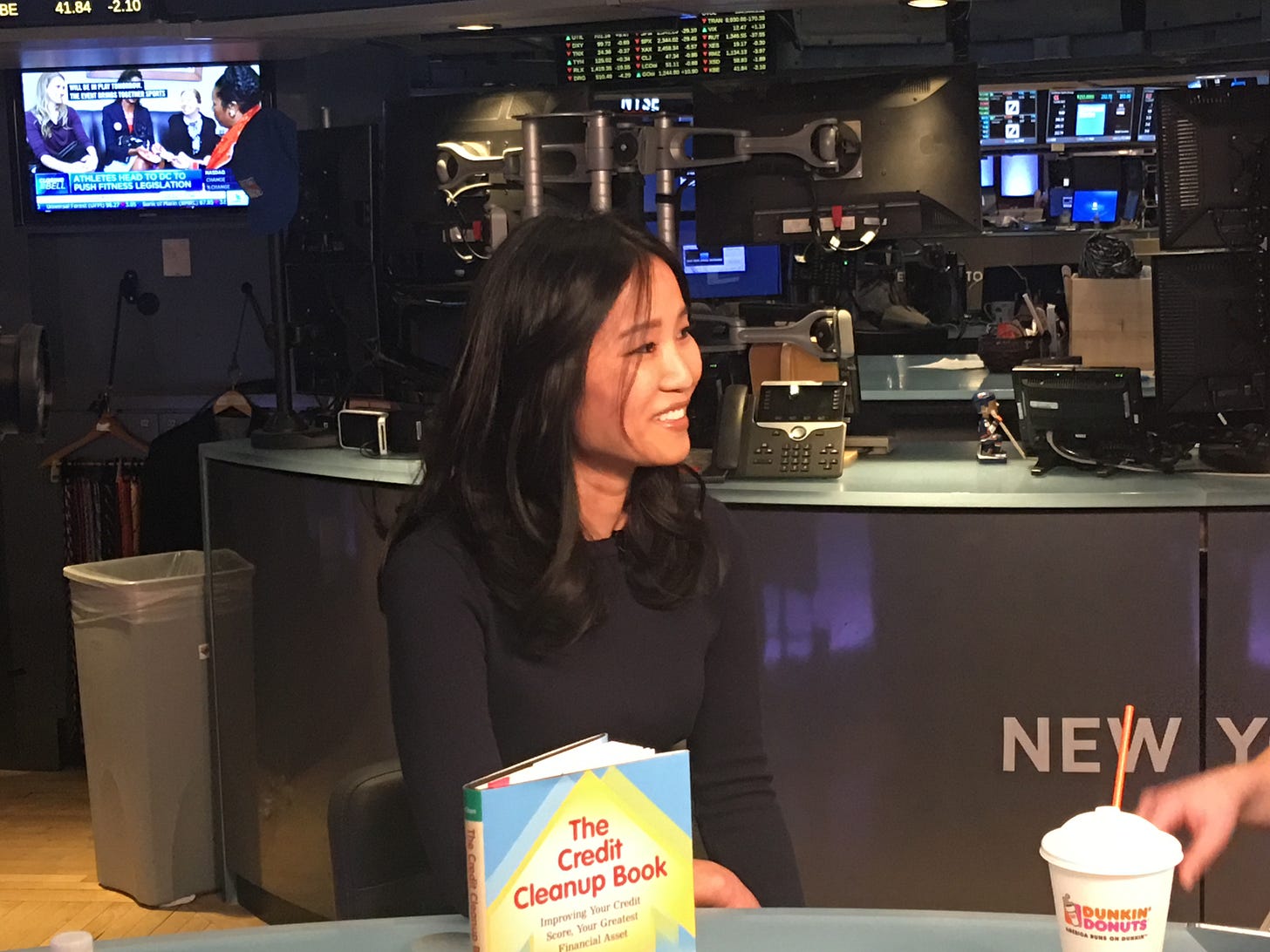How I got a book deal: My journey to getting published
And 5 myths of being a published author
Back in 2009, I wanted to be a published author. I had no idea how to do it.
So, I attended a book publishing seminar in Atlanta, where they showed attendees how to get published and market your book.
This was before I got into self-publishing, so I was going at it the traditional route.
The traditional route usually involved submitting a query letter (a one-page summary of a book project) to a literary agent, who then shopped or pitched the book to potential publishers they thought might be a good fit.
Finding a book agent
The host of the event, a published author herself, recommended going straight to the Acknowledgements section of books that were similar to yours.
Authors always thank their agents, and this was a surefire way to find out who exactly was in charge of these authors’ destinies.
At the time, I was reading a book by investing guru Jim Cramer.
My book was a personal finance title, so I looked at his Acknowledgements and sure enough, there it was. He thanked his agent Jeff Herman, an independent but well-known literary agent.
I looked Jeff up and submitted a query letter through his website.
Within two weeks he asked for an extended proposal. I sent that. Two weeks later, I received a polite “no thank you.”
Content entrepreneur | Agency Founder & CEO | Author | Featured in Forbes, Wall Street Journal, Business Insider, Cheddar TV, HuffPost | Join more than 2,500 people who follow Shindy for lifestyle and business advice:
Fun fact: I ended up working on Jim Cramer’s CNBC show, “Mad Money,” but I didn’t tell him I used his book as a resource.
Life then had me relocating for a relationship and working in London. I shelved my book project to focus on life and career changes.
But, the book project kept niggling at me, fighting for its chance in the world.
So, when I moved back to New York a couple of years later, I emailed a business school professor, and asked her how she got published.
Without hesitation she very graciously referred me to her own book agent.
Submitting a query letter
I re-purposed my query letter and emailed her agent. A query letter is a one-page synopsis of your book and may or may not include your book marketing strategies, too.
He forwarded it to a publisher. The publishing editor was interested, and requested a proposal, which is a longer query letter, and may include the first couple of chapters of your book.
I sent my proposal over with a sample first chapter.
Submitting a proposal
The editor promptly dismembered it; his comments in red font made my sample manuscript look like it was bleeding. I responded meekly that I would revise according to his specs and re-submit it.
I let one year go by. One whole year.
After my life stabilized from job changes and a particularly noxious breakup (with the London guy), I dusted the proposal off and decided once and for all to finish it.
But by the time I restructured it, I’d actually taken so long that the original publishing editor’s successor received it. Turns out she liked it, pitched it, and within one month I had a book deal.
I was ecstatic; I remember the moment I heard the news as I was dancing around the kitchen in my Upper East Side apartment.
Securing an advance
I even got an advance (money paid to authors as an incentive to finish the book): $500 at signing, $500 after submission of the complete project by deadline, and $500 upon publication, or $1,500 total.
Though I wasn’t sure what to expect, I thought it should have been more than $1,500.
I asked a fellow published author and friend for advice. He said as a first-time author I had better “just sign the fucking thing.” So I did.
And just like that, I went from being a “writer” to a “published author.”
Nowadays, unless you’re a celebrity or public figure, it’s likely you won’t get a big advance.
After I signed the deal, the hard work of writing my book began. I wrote approximately 65,000 words in 6 months.
A book of 65,000 words looks like 5 x 7 inches in size, about 1 inch thick.
“The Credit Cleanup Book” was a non-fiction guide to improving your personal credit, which in my opinion is one of your greatest financial assets.
After almost a decade working in financial services, I had helped hundreds of people get financing to buy their first and dream homes, but I also saw a lot of people who had spending issues, or just didn’t know how to get and maintain a high credit score.
The book included a lot of interviews, research, and artwork. It went through two edit rounds. I found the book editing process (which was outsourced to an editor in India) professional and efficient.
I lost the fight over my book cover, however, even after I submitted 4 alternate designs of my own.
The book was published 6 months later. I personally financed and managed all the marketing activities, including a book release party, as well as the book’s website and quarterly newsletter, which gathered more than 1,000 email subscribers because of my free content downloads.
5 myths of being a published author
After this experience, I realized the following myths of being a published author:
1. You will be rich
Unless you’re a public figure, big-time influencer, or celebrity, don’t count on your book advance or royalties to survive, at least not initially.
Sure, if you’re extremely prolific and your book(s) gain(s) notoriety, then the riches may come. Until then, you’ll still have to earn additional income.
Note that most book publishers perform royalty audits only once per year. Regardless of whether you sell 500 or 500,000 books, you may only receive annual royalty payments.
2. You will be famous
Most publishers want to know how well authors will market the book themselves. They’ll look at social media followings, media connections, any speaking gigs, and your overall marketing pitch. But you won’t become famous overnight. Thousands of new book titles are published daily.
I actually funded my own book release party, and secured my own on-air media appearances and press features—a result of my own PR work and journalist connections.
3. It will be a bestseller
No surprise—many major publishers have lined up strategies for how titles become “bestsellers.” They work with booksellers and buyers on bulk deals in the weeks leading up to the release. Unless you’re already famous, then it will take a lot of grassroots marketing and legwork on your part to get it reviewed and promoted.
Later, when I self-published two books on Amazon, I researched the strategies for making a bestseller and got my books in the top 10 and at #1 in their respective categories. I’ll show you how in a subsequent newsletter.
4. You have to write it yourself
These days, you can pay ghostwriters and/or companies upwards of thousands to write, publish, and market your book for you (even with some guaranteed press placements).
You can also leverage A.I. to help you write your book. This is particularly useful if you’re a busy executive or bad writer, or both!
5. The second book will be easier
Maybe, only after you get over myths 1 through 3, i.e., what you thought was going to happen after your book was published, and you keep at your writing muscle.
Writing the second book will be just as hard because you’ll ruminate more on how to make it just as good as the first.
Are you writing a book and have questions on the publishing process? Are you already a ublished author?
Or—are you just reading an amazing book that you’d like to tell me about?
If so, hit reply or comment below!
**
Until next time,
Shindy
On Instagram + TikTok
***
Like it
Did you enjoy this newsletter?
Please like it by clicking on the ❤️ at the very top or bottom of this post.
Referral Rewards
When you share my newsletter with someone you think would find value in it, that is the greatest gift. 🙏
But now, if you refer once, twice, or thrice, then I’m rewarding you with Instagram shoutouts, personalized notes, and Zoom chats for up to 30 minutes on any of the following topics: your content marketing efforts, a work problem and how to solve it, how to write or edit better, a frank opinion about your social media branding, a style or brand consult, travel tips, and anything else you want to gab about.









I recommend The Credit Cleanup Book and even mentioned it in one of the talks I gave recently! (And not just because you carved out a section for my fear-busting mental strategies ;)